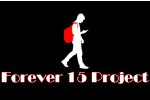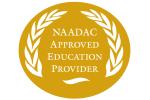Youth experiencing substance use challenges often encounter systems that are reactive, fragmented, or punitive—pushing them further into cycles of justice involvement or crisis. The Assessment Center Framework offers a powerful alternative: a coordinated, cross-system response that diverts youth from formal processing and connects them to individualized, developmentally appropriate supports. This session will introduce the Assessment Center approach and its role in early identification, family engagement, and service navigation for youth facing substance use, mental health, or behavioral challenges. Participants will gain insight into how Assessment Centers serve as a trusted, trauma-informed front door to care—especially for youth who might otherwise be arrested, suspended, or overlooked.
Learning Objectives:
- Describe the Assessment Center Framework and how it provides a community-based alternative to justice system involvement for youth in crisis.
- Identify effective practices for using Assessment Centers to respond to youth substance use, including screening, service matching, and warm handoffs.
- Understand how cross-sector partnerships within Assessment Centers—including law enforcement, schools, and behavioral health—can reduce duplication and improve outcomes.




